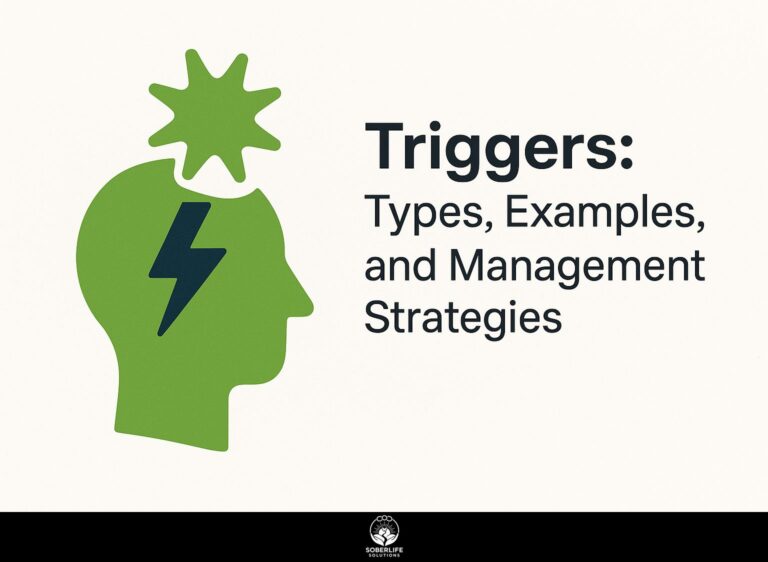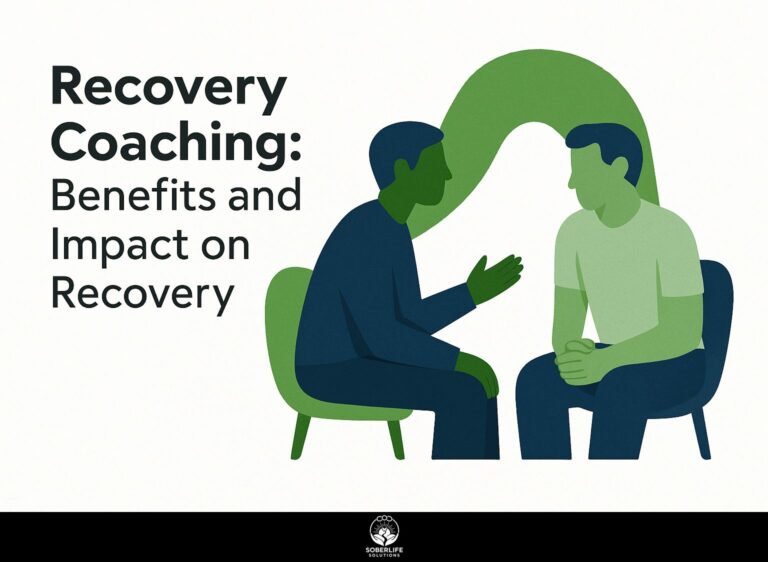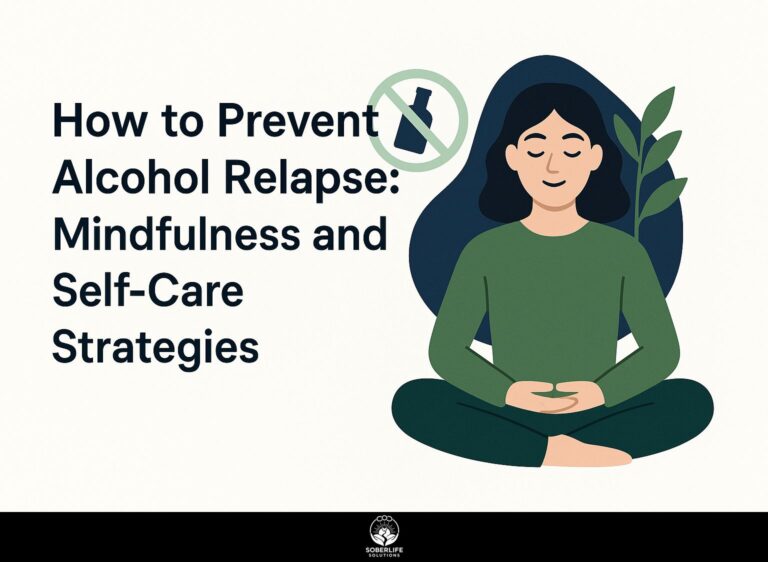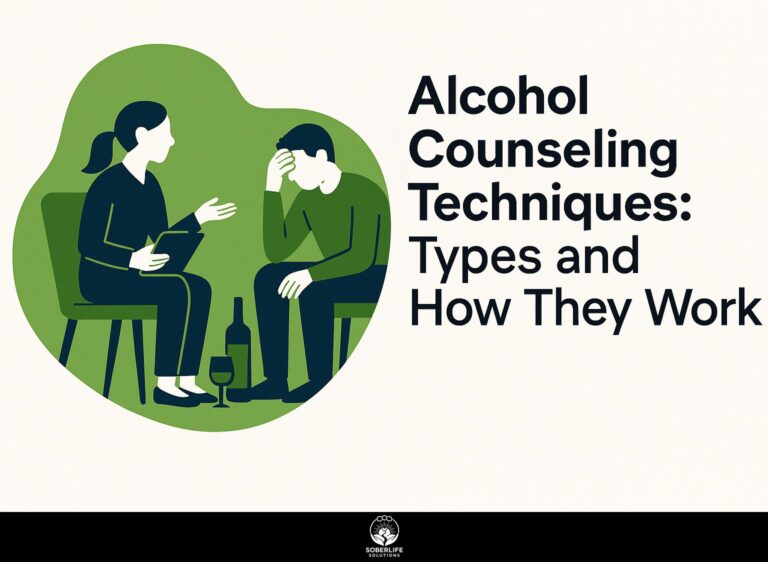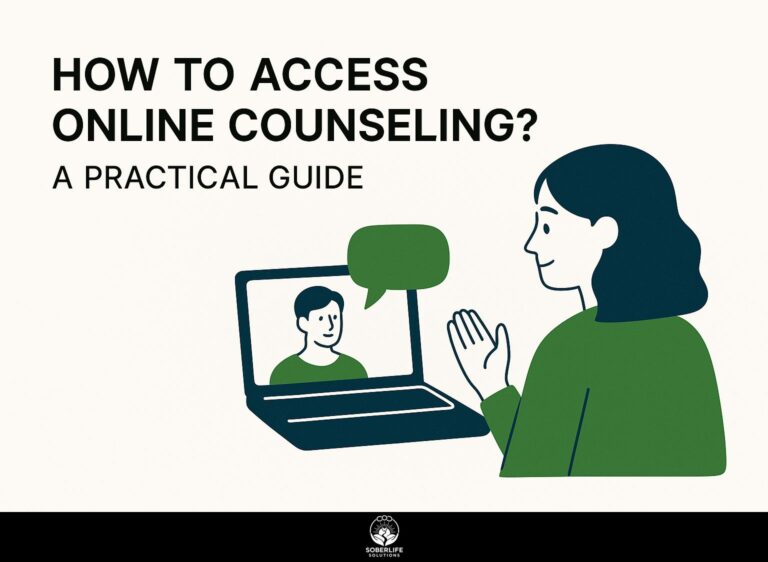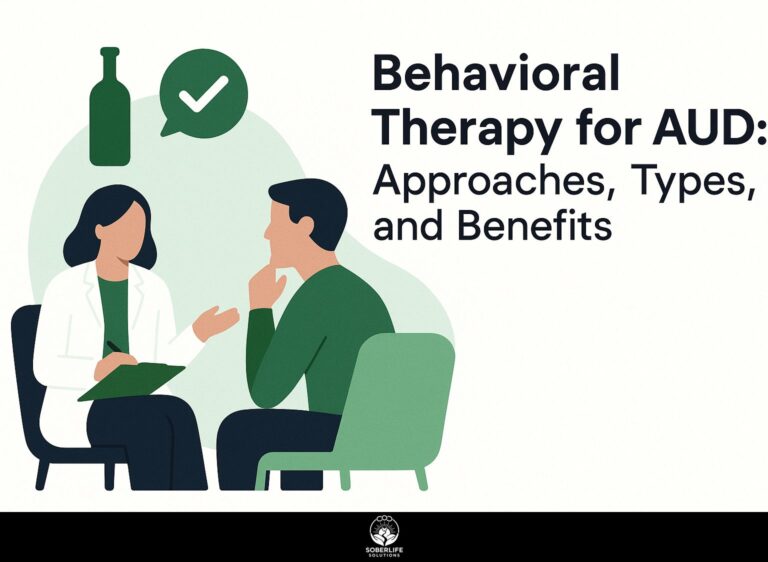How to Choose Alcohol Treatment? Key Considerations Guide
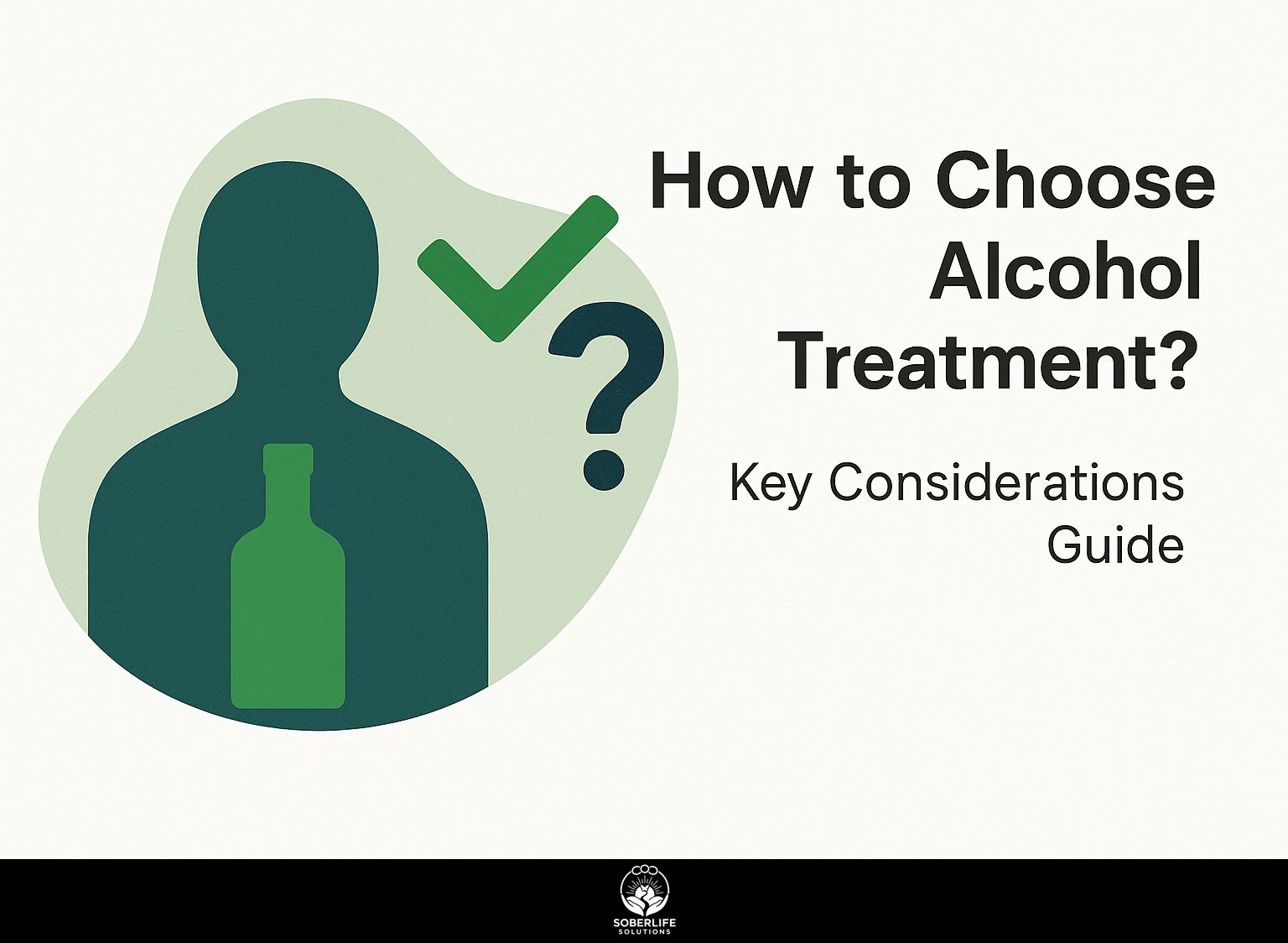
Picking the right treatment for alcohol addiction is very important, especially after the COVID-19 pandemic, which has worsened alcohol use disorders across the United States. Learning about different treatment options and getting expert help can result in successful early treatment. This guide looks at important factors when choosing the best alcohol treatment options, helping you or your loved ones make informed choices for a lasting recovery.
Key Takeaways:
Understanding Alcohol Treatment Options
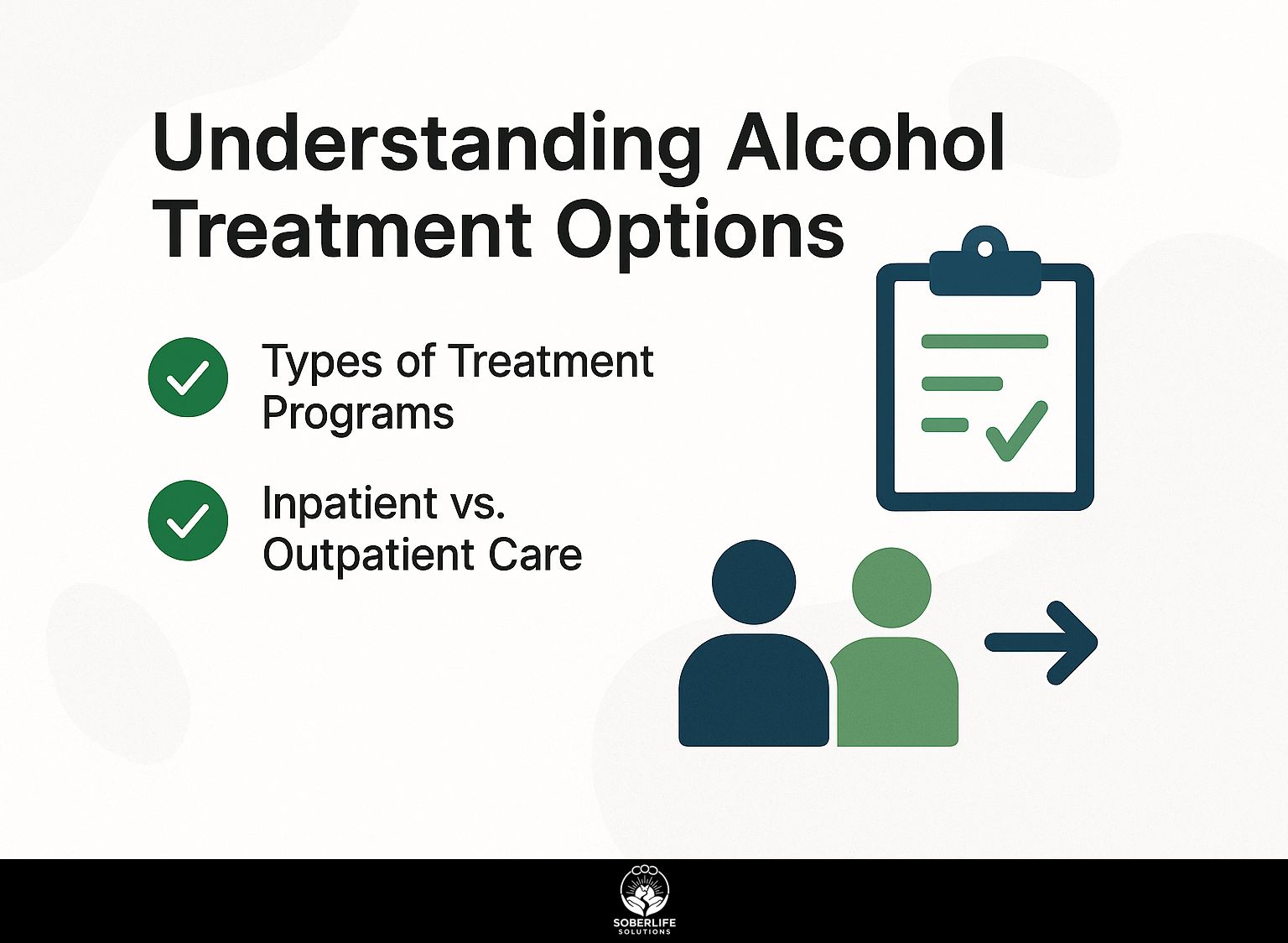
Exploring the different ways to treat alcohol problems is important for people looking for successful recovery options, particularly as alcohol issues become more common in the United States. For instance, the Mayo Clinic offers an extensive overview of diagnosis and treatment options for alcohol use disorder, detailing various approaches to recovery. Additionally, understanding the process of alcohol detox, including its definition and how it works, is crucial for anyone considering treatment.
Types of Treatment Programs
Treatment programs for alcohol addiction can be broadly categorized into outpatient and inpatient options, each offering unique methodologies and levels of support to promote recovery.
Outpatient rehab programs provide flexible scheduling and lower costs, averaging between $1,000 and $5,000. Patients can maintain their daily routines while attending therapy sessions.
In contrast, inpatient rehab offers a highly structured environment with around-the-clock care, though this typically comes with a higher price range of $6,000 to $30,000.
Behavioral therapies look into psychological factors and often result in long-term success rates of 40-60%. Selecting a suitable program relies on personal requirements, financial circumstances, and how serious the addiction is.
Inpatient vs. Outpatient Care
Choosing between inpatient and outpatient care can significantly affect the recovery process, with each option catering to different needs and circumstances.
Inpatient care offers round-the-clock supervision and intensive treatment, making it suitable for people who need immediate help. For example, The Recovery Village offers specific programs for treating both mental health and substance use disorders, providing complete care.
Conversely, outpatient care offers greater flexibility, allowing individuals to maintain daily routines while attending treatment sessions. Programs like Alcoholics Anonymous provide essential ongoing support and accountability without the need for residential stay. Notably, an analysis by ScienceDirect discusses the effectiveness of outpatient versus inpatient opioid detoxification, highlighting the pros and cons of each approach.
Think about how serious the addiction is, your daily responsibilities, and how much help you’ll need to get better. Additionally, understanding insurance laws for rehab can help you navigate financial aspects of treatment options.
Assessing Your Needs
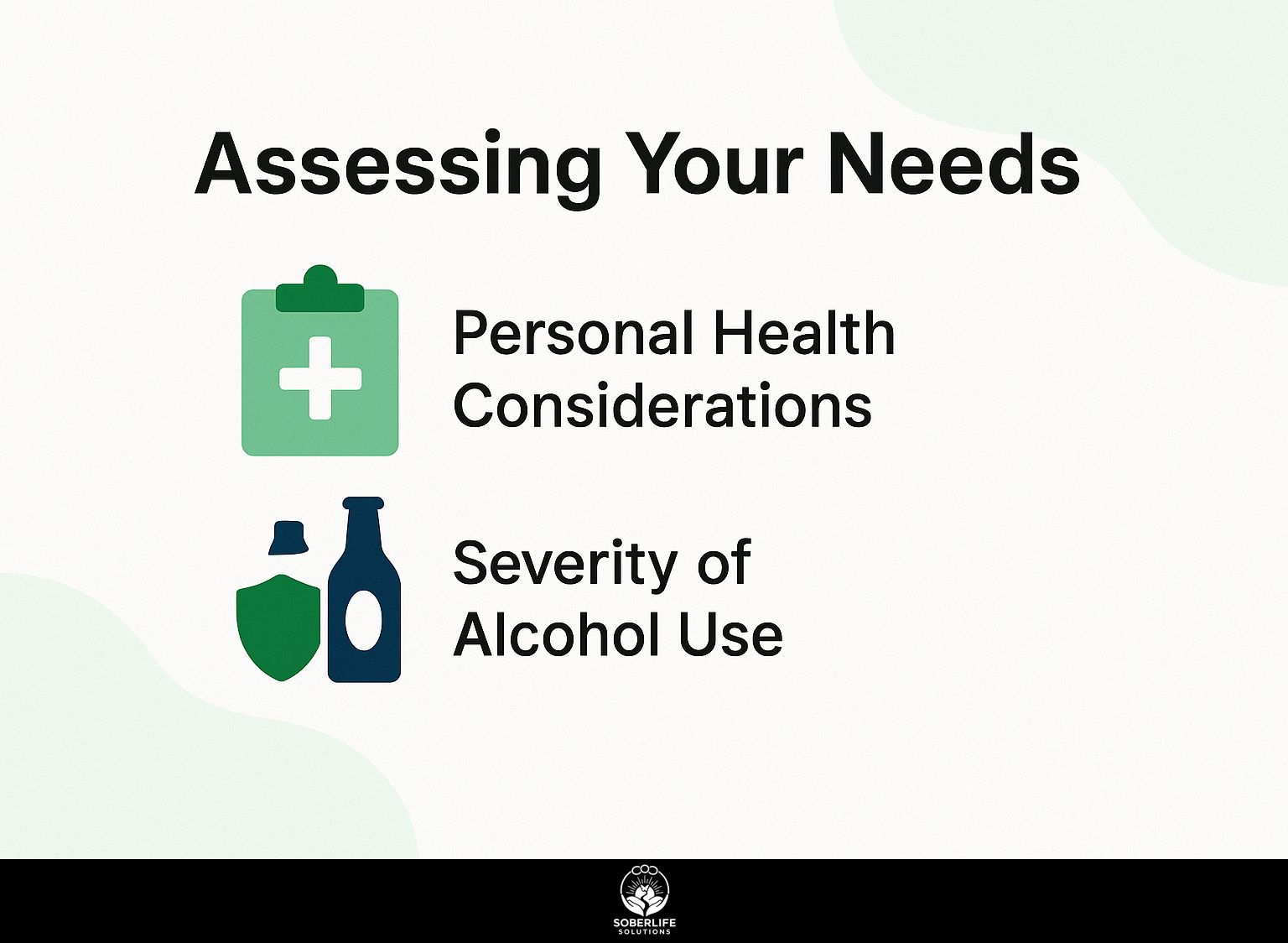
Looking at personal needs is a key first step in picking the right alcohol treatment option, which helps in building a recovery plan suited to the individual.
Personal Health Considerations
Personal health considerations, including existing mental health disorders, significantly influence the choice of treatment for alcohol use disorders, impacting recovery success.
For people who have dealt with mental health problems such as anxiety or depression before, early evaluations are very important. Tools such as the Patient Health Questionnaire (PHQ-9) can help evaluate depressive symptoms, while the Generalized Anxiety Disorder 7-item scale (GAD-7) assesses anxiety.
It’s best to check resources like the Substance Abuse and Mental Health Services Administration (SAMHSA) for detailed assessments and help choices. Customizing treatment methods-like combining therapy with medication-can improve results, creating a complete recovery plan that deals with both alcohol use and mental health. As noted by HelpGuide, understanding the complexities of dual diagnosis, where mental health issues and substance abuse are intertwined, is crucial for effective treatment.
Severity of Alcohol Use
Evaluating how serious alcohol use is helps decide the right treatment plan, and various standard tools can help with this assessment.
Two widely used assessments are the AUDIT (Alcohol Use Disorders Identification Test) and DSM-5 criteria. The AUDIT consists of ten questions focusing on alcohol consumption, dependence symptoms, and related problems, helping to identify potential risk levels.
At the same time, the DSM-5 criteria outline specific behavior patterns that indicate alcohol use disorders, categorizing them as mild, moderate, or severe.
Evaluators should consider both the tool’s results and individual circumstances together. Changes in treatment plans might be needed based on the thorough knowledge.
Researching Treatment Facilities
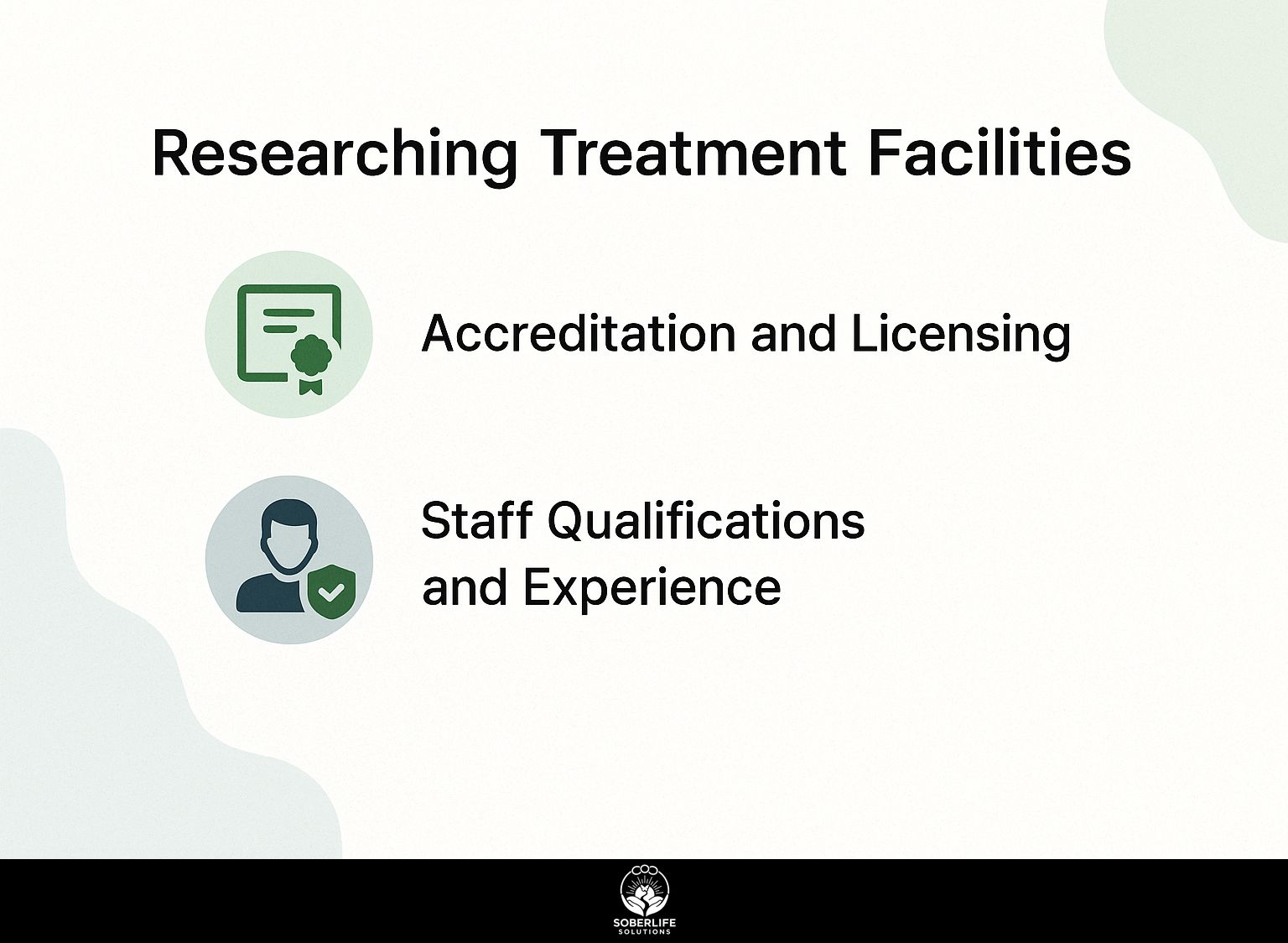
Finding treatment centers is important for getting good care and help for people starting their recovery from alcohol addiction. To assist in this crucial step, families can benefit from understanding how to choose detox and rehab centers (a guide offering valuable insights).
Accreditation and Licensing
Picking treatment centers accredited by the NAATP increases the chances of getting care that works and is based on evidence.
To verify accreditation, start by checking the facility’s credentials on reputable sites like the Substance Abuse and Mental Health Services Administration (SAMHSA). Look for certifications that signal adherence to established standards, such as those from the Joint Commission or the National Committee for Quality Assurance.
Inspect the facility’s approach to patient care; it should emphasize evidence-based practices and staff qualifications. Remember, a transparent facility will readily provide this information, reassuring you of their commitment to high-quality treatment.
Staff Qualifications and Experience
The skills and experience of the staff at treatment centers are very important for the quality of care given to people looking for recovery.
When assessing a facility, inquire about the credentials of their staff. Ask questions like:
- “What licenses do your therapists hold?”
- “How many years of experience do they have in addiction recovery?”
Find out if they have specialized training in areas pertinent to your needs, such as trauma-informed care. You may want to ask about how many staff members there are for each patient. A smaller number of patients per staff member usually means more individual care.
This search helps you locate a facility with trained staff focused on effective recovery.
Evaluating Treatment Approaches
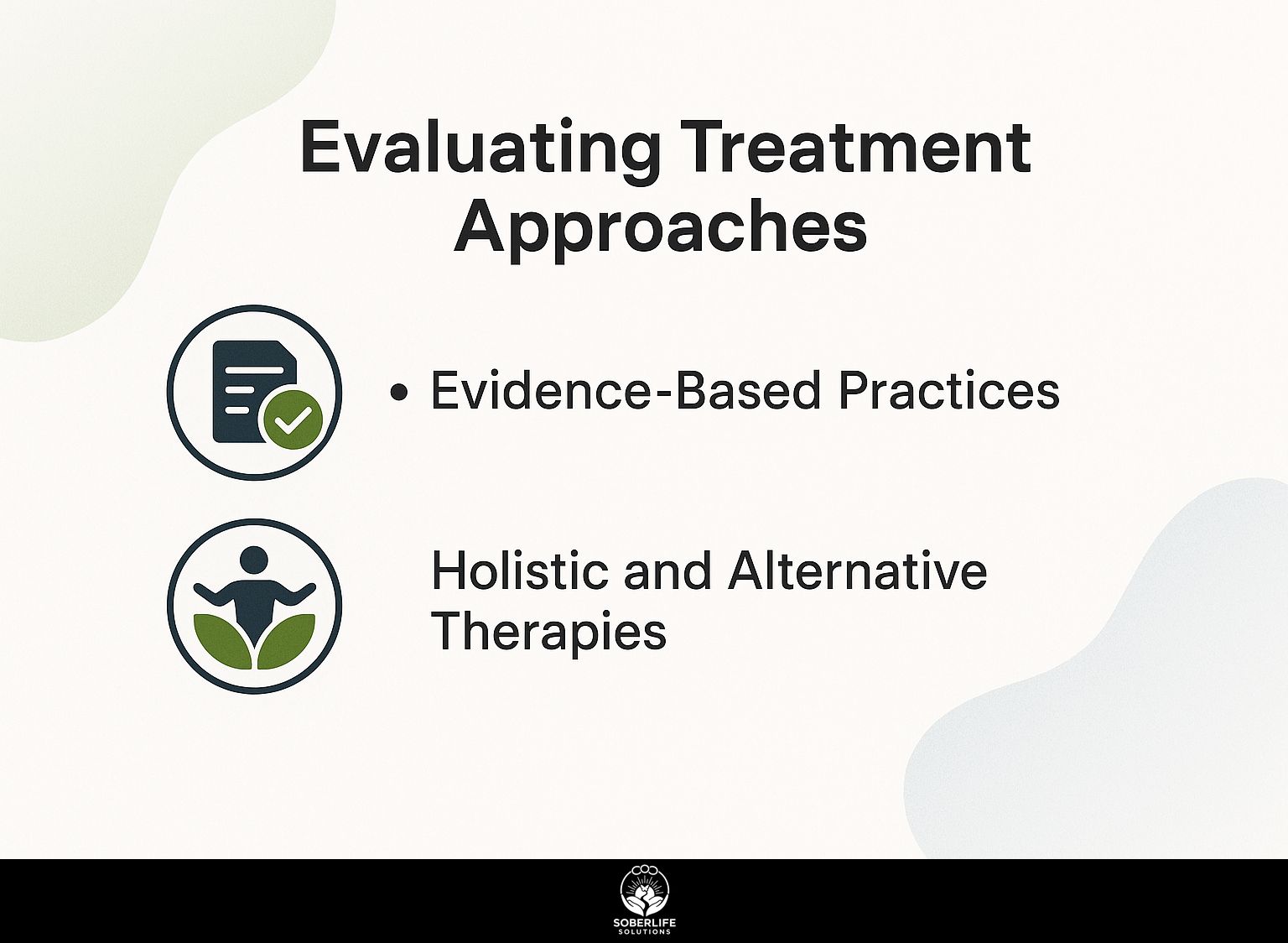
Looking at different treatment methods helps people find the best ways to recover from alcohol addiction.
Evidence-Based Practices
Evidence-based methods, like Cognitive Behavioral Therapy (CBT) and treatments that address both issues, have been successful in treating alcohol addiction along with mental health problems that happen at the same time.
Research shows that CBT can improve recovery rates by 60%, making it a key part of treatment. Programs like the Substance Abuse and Mental Health Services Administration (SAMHSA) provide tools to identify evidence-based local programs.
Using resources like the National Registry of Evidence-based Programs and Practices can improve treatment methods. To find the most suitable choices, look at things like the program’s methods and what clients say about it, as these aspects greatly affect how often it succeeds.
Holistic and Alternative Therapies
Practicing yoga and meditation can complement traditional treatments and lead to better recovery outcomes.
Therapies like acupuncture and mindfulness breathing can significantly reduce anxiety and stress during recovery. For instance, mindfulness practices encourage self-awareness and emotional regulation, aiding individuals in coping with cravings.
Programs like The Recovery Village often use these treatments, providing complete care that includes group yoga sessions and individual acupuncture sessions.
To get started, participants might try guided meditation apps like Headspace or Calm, which help establish a daily practice, encouraging a smoother transition back to a balanced life.
Cost and Insurance Coverage
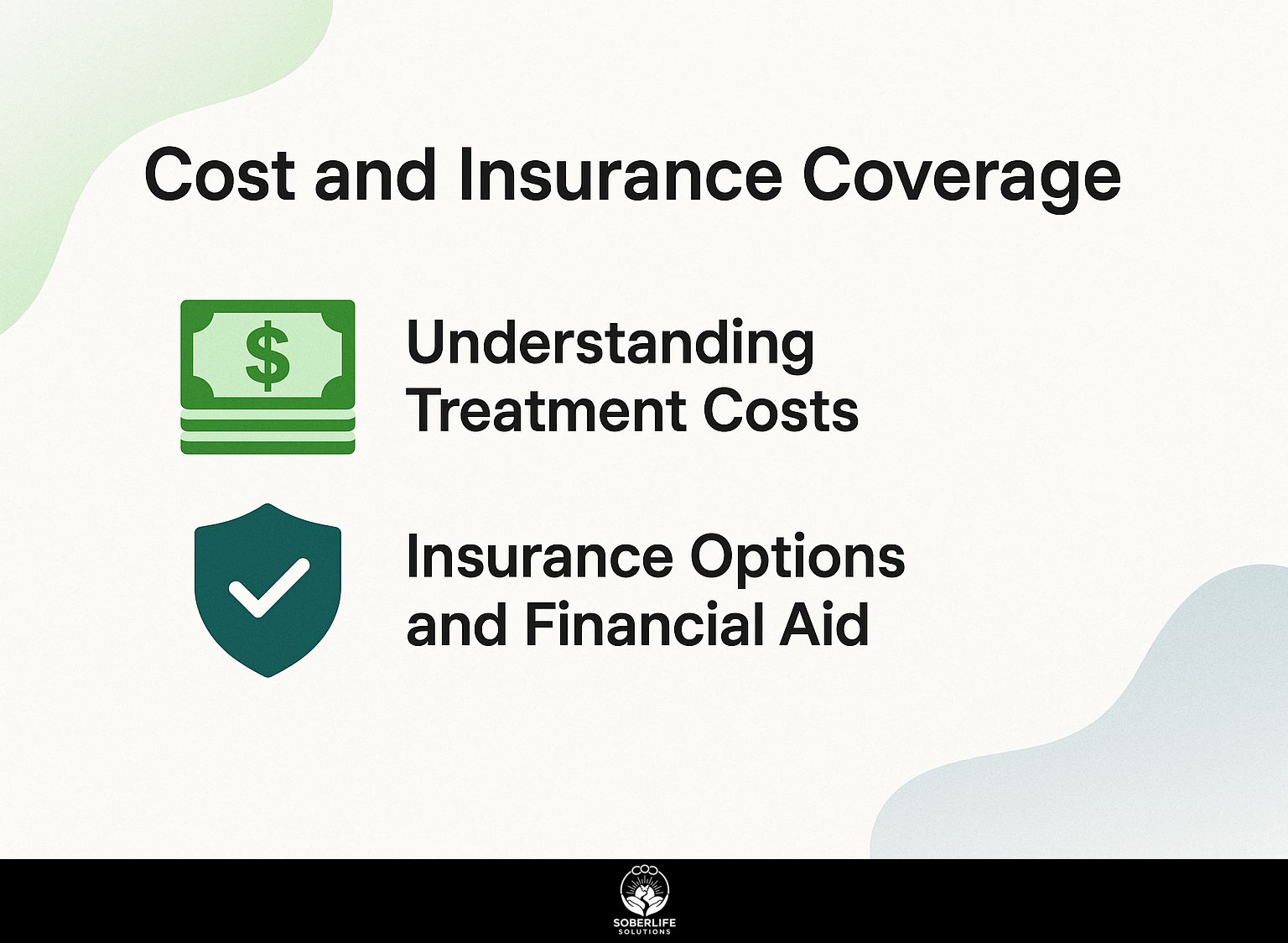
Knowing the costs of alcohol treatment and the insurance coverage options is essential for those wanting to recover without high expenses. As mentioned in our overview of insurance laws for rehab, understanding the regulations can further aid in navigating financial aspects effectively.
Understanding Treatment Costs
Treatment costs can vary widely, with inpatient rehab averaging between $6,000 and $30,000 for a 30-day program, compared to outpatient options ranging from $1,000 to $5,000.
Plus base costs, consider potential extra expenses: medications can run from $100 to $1,000 depending on the treatment plan, while therapy sessions often range from $50 to $300 each.
To budget effectively, create a detailed plan that includes all foreseeable costs and a buffer for unforeseen charges. Check your insurance policy to know what you have to pay and any restrictions. Also, consider financial help from rehab centers, which can greatly reduce expenses.
Insurance Options and Financial Aid
People can look into their insurance choices and financial help options, like Medicare and private insurance, to handle the costs of alcohol treatment well.
Medicare offers coverage for various treatment services, including inpatient rehab and outpatient therapies, with a focus on both mental health and substance use disorders.
Private insurance plans generally include the same types of services, but the details can differ significantly. It’s important to check your policy. For instance, a 2019 report indicated that about 80% of addiction treatment costs are covered by insurance.
Resources like the National Alcohol Helpline can help connect individuals with treatment centers that accept insurance or offer sliding scale fees based on income, ensuring broader access to care.
Support Systems and Aftercare
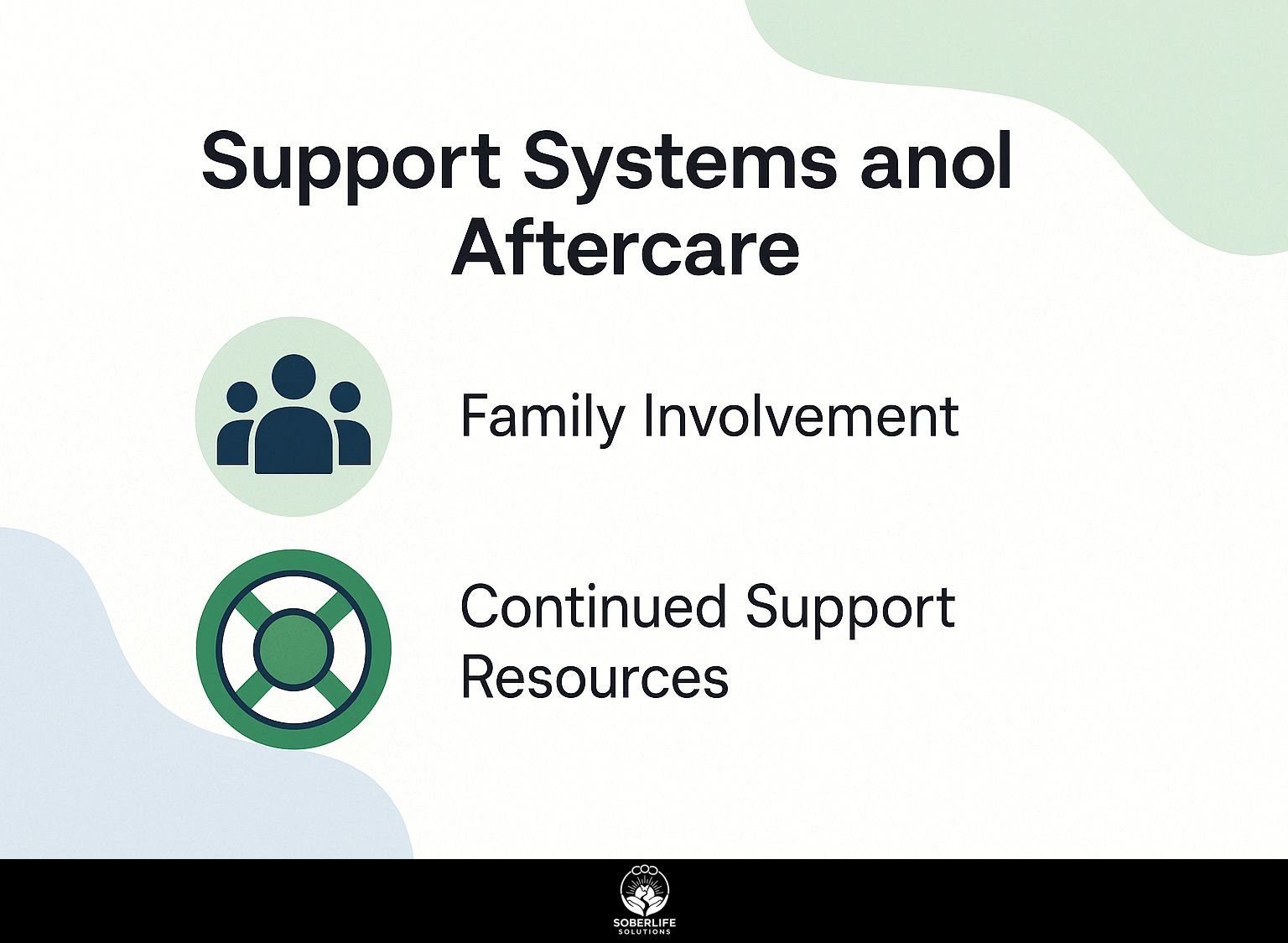
Building strong support networks and providing continuing care are important for maintaining recovery from alcohol addiction well beyond the end of formal treatment. For an extensive analysis of how these networks function and their benefits, our comprehensive study on sober support systems examines various strategies to enhance recovery outcomes.
Family Involvement
Family involvement is important for recovery, offering emotional support and encouraging positive changes in behavior.
Participating in family therapy sessions can significantly improve recovery outcomes. Studies show that individuals with strong family support are 50% more likely to maintain sobriety compared to those without.
Family members should attend educational workshops together to understand addiction and recovery better. Programs such as the Community Reinforcement Approach focus on rewarding positive behavior that families can use at home.
Having regular family meetings can improve communication, making everyone feel involved and committed to the recovery process. This complete method creates a helpful setting that is important for long-term change.
Continued Support Resources
Ongoing support resources, like Alcoholics Anonymous and recovery groups, greatly increase the chances of long-term recovery and lower the risk of falling back into old habits.
To find local support options, start by checking local community centers or health clinics, which often host meetings.
Alcoholics Anonymous (AA) offers globally recognized meetings, while Narcotics Anonymous (NA) specifically focuses on drug recovery.
Consider online forums like SoberGrid for peer support, or search for community support groups on platforms like Meetup.
Many people gain from the shared experiences and emotional connection in these groups, creating a feeling of belonging and responsibility during their recovery process.
Frequently Asked Questions
What is the first step in choosing an alcohol treatment program?
The first step in choosing an alcohol treatment program is to evaluate your personal needs and goals. Think about things like how severe your addiction is, how much you can spend, and what kind of treatment you prefer.
What are some key considerations to keep in mind when choosing alcohol treatment?
Some important factors to consider when choosing alcohol treatment include the reputation and accreditation of the program, the qualifications of the staff, the types of therapy and services offered, and the location and amenities of the facility.
Should I choose inpatient or outpatient treatment?
The decision between inpatient and outpatient treatment depends on the individual’s needs and circumstances. Inpatient treatment offers a higher level of care and might be needed for serious addictions, while outpatient treatment offers more flexibility and could be better for those with less severe addictions.
What role does insurance play in choosing alcohol treatment?
Insurance coverage can greatly impact the cost and availability of alcohol treatment options. It’s important to check with your insurance provider to see what services are covered and if there are any restrictions or limitations.
How do I know if a treatment program is effective?
A reputable treatment program should have a track record of success and be able to provide statistics or testimonials from past clients. You can also research the program’s methods and approach to determine if it aligns with your personal goals and needs.
What should I do if I am unsure about choosing an alcohol treatment program?
If you find it hard to pick an alcohol treatment program, consider asking a doctor or someone you trust for advice. They can provide support and help you consider your choices to make the best decision for your recovery process.

